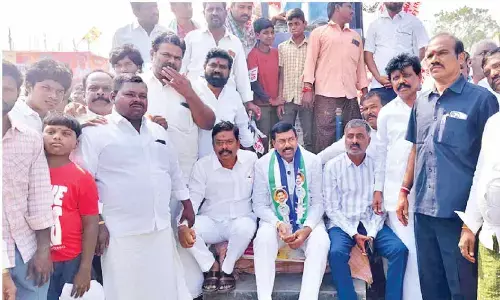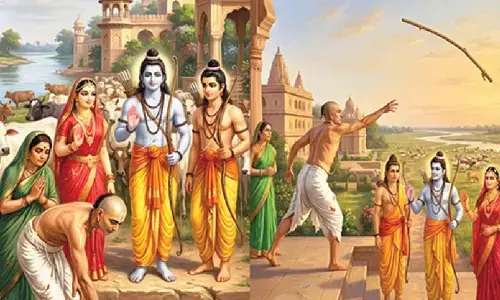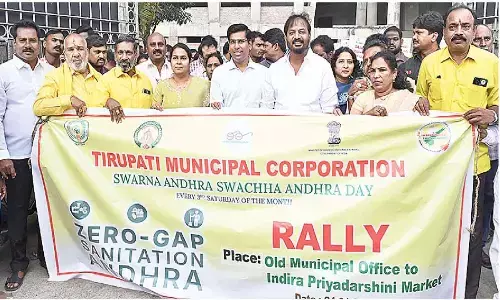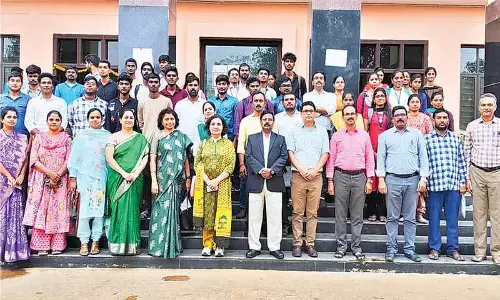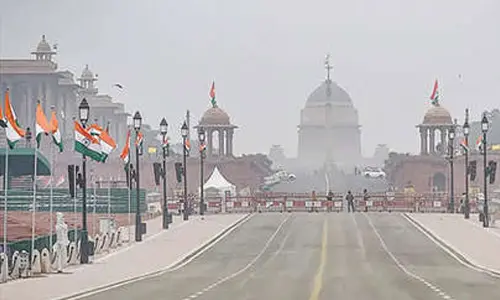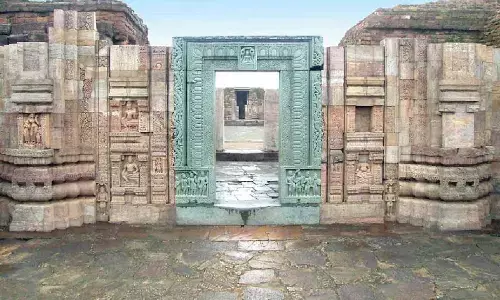At 75, India Still Needs A Gandhi
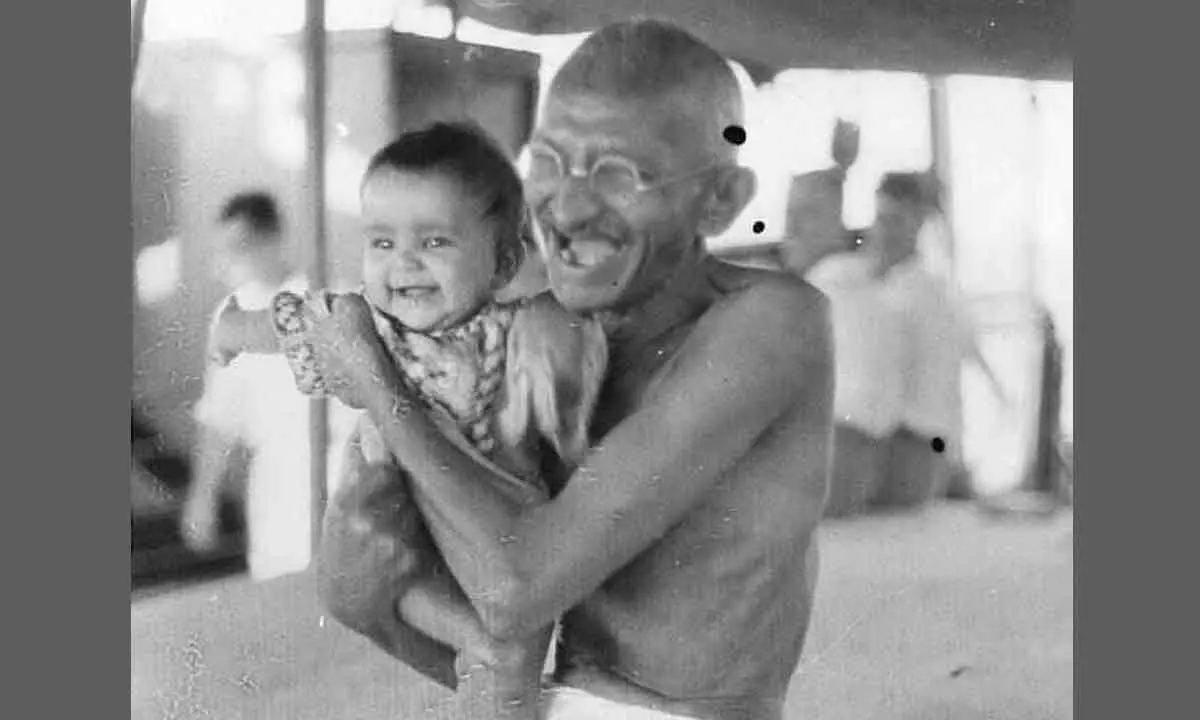
A question that often crops up at debates is "Whether Gandhiji is relevant today? Do we really need a Gandhi in India? The pessimists among us may say an emphatic 'No,' while the optimists may feel that these questions are asinine as the Mahatma has a perpetual and perennial relevance not only in India but in the entire world.
A question that often crops up at debates is "Whether Gandhiji is relevant today? Do we really need a Gandhi in India? The pessimists among us may say an emphatic 'No,' while the optimists may feel that these questions are asinine as the Mahatma has a perpetual and perennial relevance not only in India but in the entire world. They say that we need him now more than ever.
After having watched the film, 'Gandhi' by Richard Attenborough, a gentleman said that, "It was a film that moved me to accepting the power and wisdom of the man." To know something about his power and wisdom, one has to look at Gandhi the lawyer, Gandhi the leader, and Gandhi the man. In other words, what does Gandhi really mean to us?
As a lawyer in South Africa, Gandhi displayed his power of being morally right. In his 21 long years of law practice, Gandhi never swerved from the path of truth. He firmly believed that "Facts means truth and once we adhere to truth, the law comes to our aid naturally." It was his power of truth as he fondly thought that "Truth alone triumphs", which he made his life principle. Today we are desperately in need of his power of truth because, as John Keats said that "Beauty is truth, truth, beauty/and that is all/ ye know on earth/ all ye need to know." Keeping this in mind, our PM Modi in the UNO last time talking on the occasion of 'Gandhi @150', emphatically spoke about the relevance of Gandhi's message of truth, non-violence for us today.
Gandhi lived half naked not without reason but as a true leader of his poor and impoverished people. This had won for him the pejorative term, "Half-naked Fakhir" from none other than an arrogant Winston Churchill!
Finally, Gandhi the man had faced many ups and downs in life. As a husband of a devout and dutiful wife, as a father of four children, Gandhi weathered many challenges. In his youth, Gandhi encountered many temptations like Jesus. But Jesus resisted them while Gandhi yielded to them only to conquer them as Oscar Wild believed that "The only way to overcome a temptation is to yield to it." A truly spiritual person loves all people, prays for them, crosses all hurdles of hate and envy, leads an austere and contented life. Gandhi, the man, did all these things. He helped the poor, worked for the sick, and gave new lease of life to lepers by taking them into his care! Such wisdom about God and life, we need now more than ever.
- M Somasekhar Prasad, Hyderabad
II
Though every leader swears allegiance to follow the doctrine of Ahimsa or non-violence set by Mahatma Gandhi and hailing him as the gentle prophet of the world promising to secure a life of dignity and peace to every human being, in reality what is witnessed is that the present stock of leaders have been only doing the opposite to grab power by hook or crook. As a result, the political scenario is only worsening.
What is more shocking is that on two days of a year i.e., on 30th January and 2nd October, every leader without fail invokes religiously Gandhiji's words "My Religion is Hinduism - - - -which, for me, is religion of humanity and truth through which I am being led to the path of non-violence and compassion" to identify themselves as the true and strict follower of ideals of the Mahatma. But the reality is quite bitter.
While it was remarkable that without the aid of modern communication methods, Gandhiji could awaken the hearts and minds of the country's millions who were ready to follow him in true spirit even though he did not promise them power or riches, it is sad that none is ready to accept today's leaders as their actions in every issue belies truth and sincerity. At a time of moral decadence where terrorism, radicalisation, extremism and mindless hate are dividing societies and nations, let us all on the birth anniversary of our beloved Bapu recollecting the clarion calls of peace and ahimsa of Gandhiji not only celebrate the thoughts of Mahatma but also imbibe it fully every day to unite humanity because after all 'Gandhism is a synonym of humanism'.
- K R Srinivasan, Secunderabad
III
October 2, 2022 is the 154th birth anniversary of Mahatma Gandhi whose life was inspired by the world renowned Indian treatise of Bhagavad Gita. His life was led by moral strength he acquired from Hindu Dharma in which he believed immensely. Gandhi had a clear vision of classical culture and traditions adopted by the people of India. He had cultivated the path of non-violence by taking a cue from India's policy of non-aggression which also included the teachings of Gautama Buddha.
The attitude of integrating people of all hues was adopted by Gandhi to unify the nation during the freedom struggle. The Gandhian path of peace and non-violence was adopted by world leaders like Martin Luther King (Jr.) during revolt raised in the US against racism. Nelson Mandela was led to success on the issue of human rights and racial discrimination in South Africa only through the idealistic approach shown by Gandhi. Several leaders of world nations declared that they wholeheartedly accepted and followed the Gandhian ideology of peace and non-violence.
The ill-will and conspiracies among the Britishers were responsible for not considering Mahatma for the Nobel peace prize. The Nobel Prize selection committee had to hang its head in shame for such a folly.
Gandhi was an expert in making social reforms a part of political struggle. He resented religious conversions, invited women to participate in the freedom struggle, employed hunger strikes in protest against the policies devised by the British rulers, and taught the policy of evenly following the righteous norms in achieving final targets/goals. All in all, the present-day leaders and all the new generation of representatives should study the life and teachings of Gandhi and scrupulously follow the relevance of his ideology.
- Bh Indu Sekhar, Hyderabad








